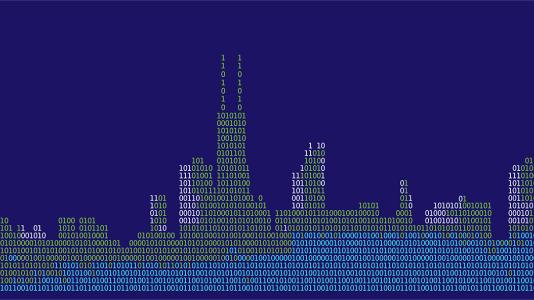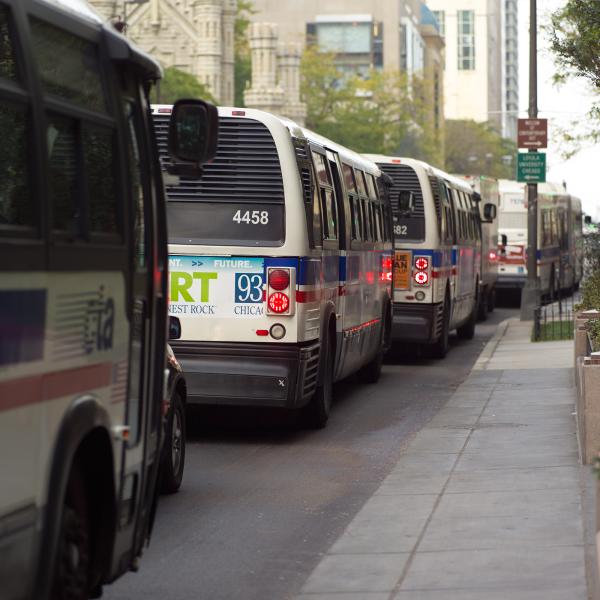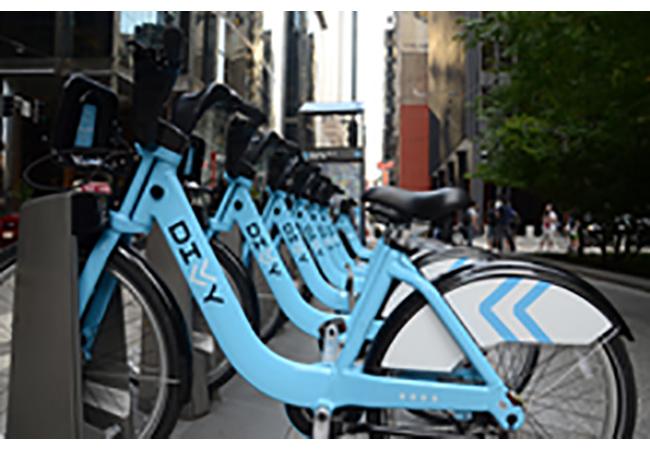
To solve these problems and others, public agencies have begun to take a new approach: using extensive data analysis for solutions to some of the hardest community challenges.
As part of a collaboration between Argonne and the University of Chicago, a group of young researchers—most either still in or just out of college or graduate school—began this past summer to explore the use of data analytics to address thorny social and economic issues.
Held for 12 weeks last summer in an immense lofted office on the 23rd floor of a downtown high-rise, the Eric and Wendy Schmidt Data Science for Social Good (DSSG) summer fellowship was initially conceived by Rayid Ghani, who had spent the previous 18 months as the chief data scientist for President Obama’s re-election campaign. With institutional backing from the University of Chicago and funding from the MacArthur Foundation and Google executive chairman Eric Schmidt, DSSG quickly assembled a crack team of young computational scientists and statisticians.
“For years, people have associated the term ‘data analysis’ with the hard sciences, like astrophysics or genomics,” Ghani said. “Given the recent advances that have been made on the technological side, we noticed that there was a big opportunity for us to extend similar datasets and analytics into the social space as well.”
At DSSG, 40 fellows teamed up into a dozen groups of three or four and partnered with a public agency or nonprofit group in the city. These partner organizations ran the gamut from social service providers to the Chicago Transit Authority. Even though these organizations have different missions and provide unrelated services, DSSG fellows believe they can use data mining to identify creative solutions to systemic problems.
“Our goal involves applying these computational tools to make policymaking, investments, and interventions all more proactive,” said Argonne computational scientist Charlie Catlett, who led Argonne’s involvement with the project. “The more we begin to understand these kinds of systems by doing this research, the more easily cities can get ahead of problems.”
The transformation of Chicago from its current self to the kind of Windy City envisioned by DSSG faces several immediate obstacles, especially when it comes to introducing the project to industries unfamiliar with data analytics. “Although the groups we’re working with are very interested, they often don’t know what’s possible with the data they’re generating,” said Juan-Pablo Velez, director of communications for DSSG and a former data journalist with the Chicago News Cooperative.
“The process starts even before you look at the data for the first time,” he said. “If you don’t understand the context in which the data is produced, you can’t communicate with the people who will hopefully be implementing the kinds of policies and changes you will eventually recommend.”
“It’s a human challenge as much as—if not more than—a mathematical one,” he said.
Slicker Cities
One group of DSSG fellows partnered with the Chicago Transit Authority to study the effect of bus scheduling on ridership. Many residents who depend on buses are familiar with what is popularly referred to as “bus bunching,” in which two or three buses arrive at a stop in rapid succession after what feels like a nearly interminable wait. By analyzing ridership data collected from tens of thousands of different bus trips all around the city, one of the DSSG teams hopes to more efficiently schedule and route buses to improve service and overall rider satisfaction.
Discoveries with bus transit might also have implications for other types of urban transportation. Last June, the City of Chicago unveiled a new bike sharing program called Divvy, in which riders can rent bikes and dock them at hundreds of different locations around the city. One DSSG team used the data from bike sharing programs in other U.S. cities to anticipate and hopefully avoid situations in which stations are either completely full (leaving no available docks) or completely empty.
In one of the most complex and intriguing projects, several DSSG fellows spent the summer working with representatives from the Cook County Land Bank Authority. Established in the aftermath of the housing crisis, the Land Bank reacquires foreclosed or vacant homes in and around Chicago and then either demolishes, rents them at below-market prices, or repurposes them.
But because some blighted neighborhoods contain many more foreclosures than the city could afford to buy, the Land Bank turned to DSSG for help developing a tool to identify the most attractive or vulnerable properties based on neighborhood statistics like the acreage of nearby parks and crime rates.
The patterns and trends that the researchers at DSSG extract from their enormous datasets will soon give policymakers the ability to proactively tackle complex sociological and economic problems. “We’re going to start seeing a real impact in the public domain,” Catlett said. “There’s going to be an explosion of applications for ‘friendlier’ cities.”
DSSG has attracted the attention of Chicago Mayor Rahm Emanuel and his staff. Last August, Catlett hosted a meeting at DSSG’s offices with former City of Chicago Chief Technology Officer John Tolva and a dozen policy officials from the Mayor’s office. “When I heard what Rayid and Charlie were doing here, I knew that we were really just touching the tip of the iceberg,” Tolva said. “There’s so much potential, and I think we as a city are really waking up to the possibilities.”
Chicago, however, is not the only proving ground for DSSG’s research. A number of the student teams spent the summer working on international projects. One team partnered with the Qatar Computing Research Institute to collect and categorize social media reports relating to natural disasters in order to organize the efforts of first responders and volunteers. Another tracked election fraud and political turmoil for Ushahidi, a technology nonprofit that helps international watchdog groups follow incidents related to political unrest around the world.
The massive nature of the datasets also gives data scientists more confidence in projections. “Having this much data allows us to adopt what’s called an ensemble approach, which is similar to what forecasters use to track hurricanes in the Gulf of Mexico,” Catlett said. “In each case, there are many models and lots and lots of data that we have to look at in concert in order to draw conclusions. But at the same time, if our data demonstrates a general consensus, it makes it much easier for us to manage risk.”
By providing students and young professionals with the opportunities to work closely with organizations that are searching for ideas to improve urban communities, Ghani and the other organizers of the DSSG fellowship program hope to entice the fellows to continue applying their talents to social issues even after the end of the summer.
“We want to show them that there’s a place where they can use their talents to work on the problems that matter,” added Velez.
Catlett said that the program had no trouble recruiting. “We relied exclusively on social media and word of mouth to get the word out over a two-week period, and we still had more than 500 applicants,” he said. “These are some of the brightest young minds on the planet, working on some of the biggest challenges we face today.”
This story was originally published as one of the cover stories in volume 8, issue 1 of Argonne Now, the laboratory’s semiannual science magazine.
City of the Big Data


